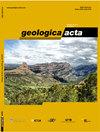Geometry and kinematics of the Baza Fault (central Betic Cordillera, South Spain): insights into its seismic potential
IF 2
4区 地球科学
Q2 GEOLOGY
引用次数: 7
Abstract
The geometry and kinematics of active faults have a significant impact on their seismic potential. In this work, a structural characterization of the active Baza Fault (central Betic Cordillera, southern Spain) combining surface and subsurface data is presented. Two sectors are defined based on their surface geometry: a northern sector striking N–S to NNW–SSE with a narrow damage zone and a southern sector striking NW–SE with a wide damage zone. A kinematic analysis shows pure normal fault kinematics along most of the fault. Geometric differences between the northern and southern sectors are caused by i) a heterogeneous basement controlling the fault geometry at depth and in the cover; ii) different orientations of the Baza Fault in the basement with respect to the regional extension direction and iii) interaction with other active faults. We use this structural characterization to analyse the segmentation of the Baza Fault. According to segmentation criteria, the entire Baza Fault should be considered a single fault seismogenic segment. Consequently, the seismic potential of the fault is defined for a complete rupture. Magnitude for the Mmax event is calculated using several scale relationships, obtaining values ranging between Mw 6.6 and Mw 7.1. Recurrence times range between approximately 2,000 and 2,200 years for Mmax events and between 5,300 and 5,400 years for palaeo-events. A geodetic scenario modelled for an Mmax event of Mw 6.7 shows permanent vertical displacements of more than 0.40m and an overall WSW–ENE extension during entire ruptures of the Baza Fault.巴扎断层(西班牙南部贝提克山脉中部)的几何和运动学:对其地震潜力的洞察
活动断层的几何形状和运动特性对其地震潜力有重要影响。在这项工作中,结合地表和地下资料,介绍了活跃的巴扎断层(西班牙南部贝提克山脉中部)的结构特征。根据其表面几何形状定义了两个扇区:北部扇区走向北向南至西北西sse,具有狭窄的破坏区,南部扇区走向西北西se,具有广泛的破坏区。运动学分析显示沿大部分断层为纯正断层运动学。南北段的几何差异是由以下原因造成的:(1)非均质基底控制了断层在深部和盖层的几何形状;2)巴扎断裂在基底的伸展方向与区域伸展方向不同;3)与其他活动断裂的相互作用。我们利用这一构造特征分析了巴扎断裂的分段。根据分割标准,整个巴扎断裂应视为一个单一的断层发震段。因此,断层的地震潜势被定义为完全破裂。Mmax事件的震级是使用几个尺度关系计算的,得到的值在Mw 6.6和Mw 7.1之间。Mmax事件的重复周期约为2000年至2200年,而古事件的重复周期约为5300年至5400年。模拟Mmax事件为6.7 Mw的大地测量情景显示,在整个巴扎断层破裂期间,永久垂直位移超过0.40m,整体WSW-ENE延伸。
本文章由计算机程序翻译,如有差异,请以英文原文为准。
求助全文
约1分钟内获得全文
求助全文
来源期刊

Geologica Acta
地学-地质学
CiteScore
2.50
自引率
6.70%
发文量
13
审稿时长
>12 weeks
期刊介绍:
- Relevant conceptual developments in any area of the Earth Sciences.
- Studies presenting regional synthesis.
- Thematic issues or monographic volumes presenting the results from one or more research groups.
- Short papers reflecting interesting results or works in progress.
- Contributions and results from Research Projects, Workshops, Symposiums, Congresses and any relevant scientific activity related to Earth Sciences.
- Geologica Acta aims to stimulate rapid diffusion of results and efficient exchange of ideas between the widespread communities of Earth Science researchers (with special emphasis on Latinamerica, the Caribbean, Europe, the Mediterranean
 求助内容:
求助内容: 应助结果提醒方式:
应助结果提醒方式:


